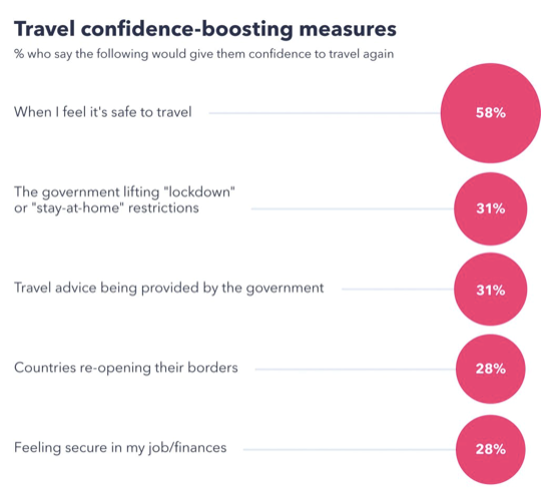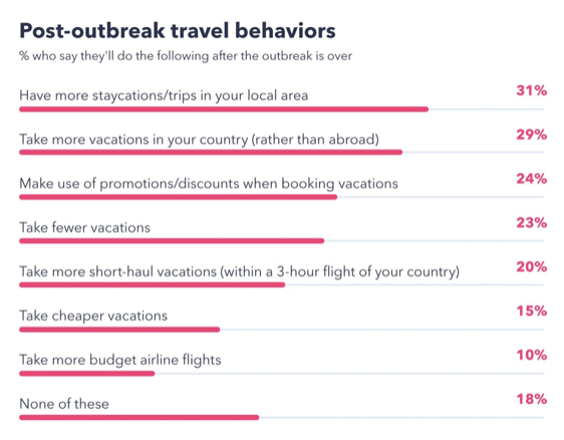
Poland, following other EU countries, has opened its borders to tourists from the Schengen Area, and – going a step further – has resumed international flights. It would seem that these steps will prove to be welcomed by those tired by the lockdown. However, it is worth considering if, after the loosening the restrictions, everyone is eagerly going to travel abroad?
Poland, following other EU countries, has opened its borders to tourists from the Schengen Area, and – going a step further – has resumed international flights. It would seem that these steps will prove to be welcomed by those tired by the lockdown. However, it is worth considering if, after the loosening the restrictions, everyone is eagerly going to travel abroad? Only 31% of consumers said that thanks to the government’s reduction of restrictions, it will once again gain confidence in the possibility of safe travel, according to a global GWI study. The same number of respondents declared that it is government advice that makes them feel safe enough to travel. These results are not very high, which, according to GWI, may result from disappointment with government crisis management. It also affects the travel planning – as many as 58% of respondents declared that only when they felt safe, would they consider this idea.

Meanwhile, the consumers who want to travel post-outbreak, plan the journey very carefully. And so, as many as 60% of respondents are spending next vacation in the country or within their region. In the case of Poland, the data looks as follows: 51% of respondents will spend their holidays in the country, and only 7% will organize a trip abroad. The above data may result from the fact that consumers perceive domestic travel as a less expensive and challenging way to travel. And it does not have to be about the cost of the stay itself: the respondents prefer cheaper solutions when planning future trips (15% declared interest in low-budget holidays, and 10% finding cheap flights). However, what distinguishes domestic and foreign travel is, according to the respondents, a lower risk of problems during their stay. According to GWI, this may be because citizens perceive their country as coping better with outbreak than others.

